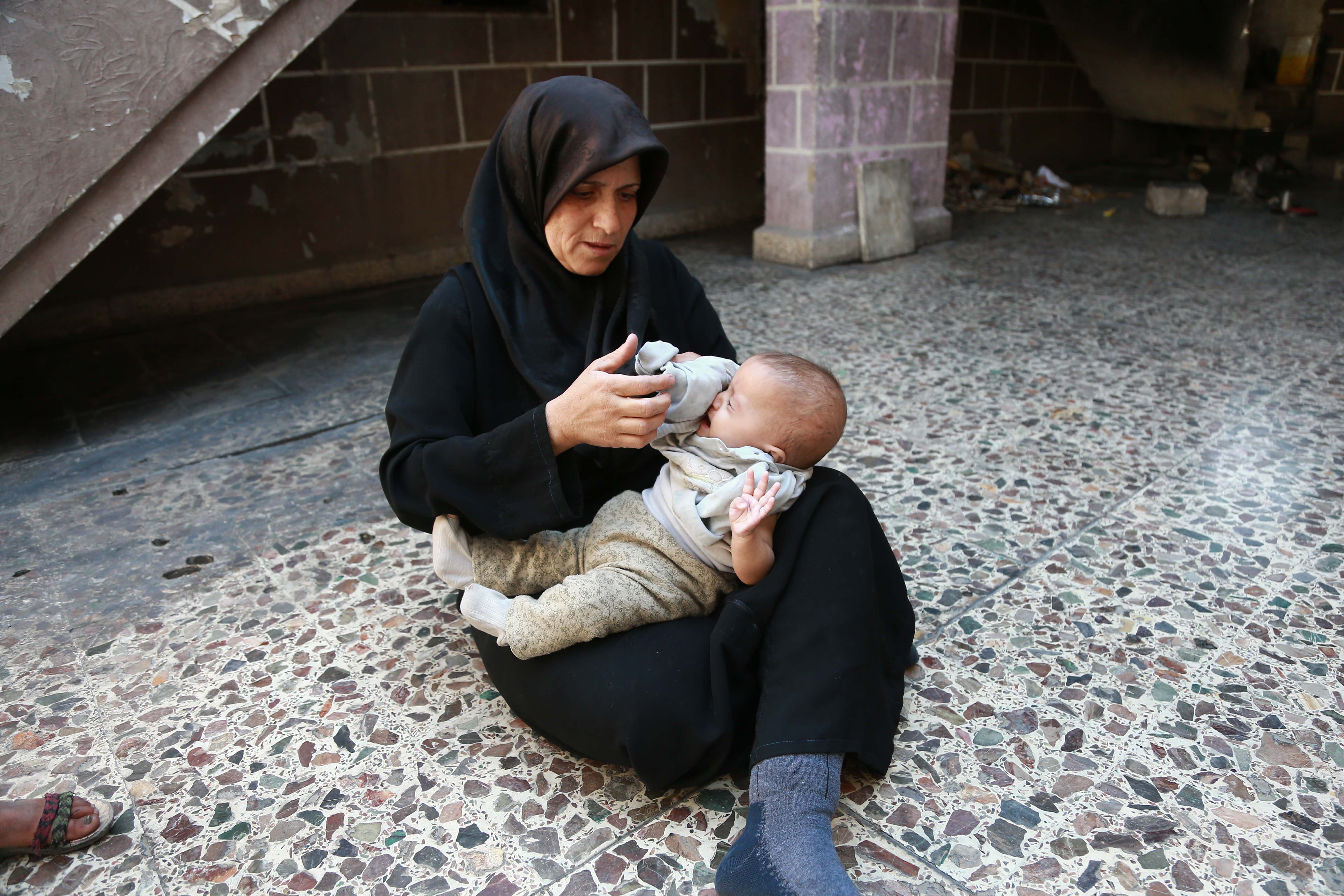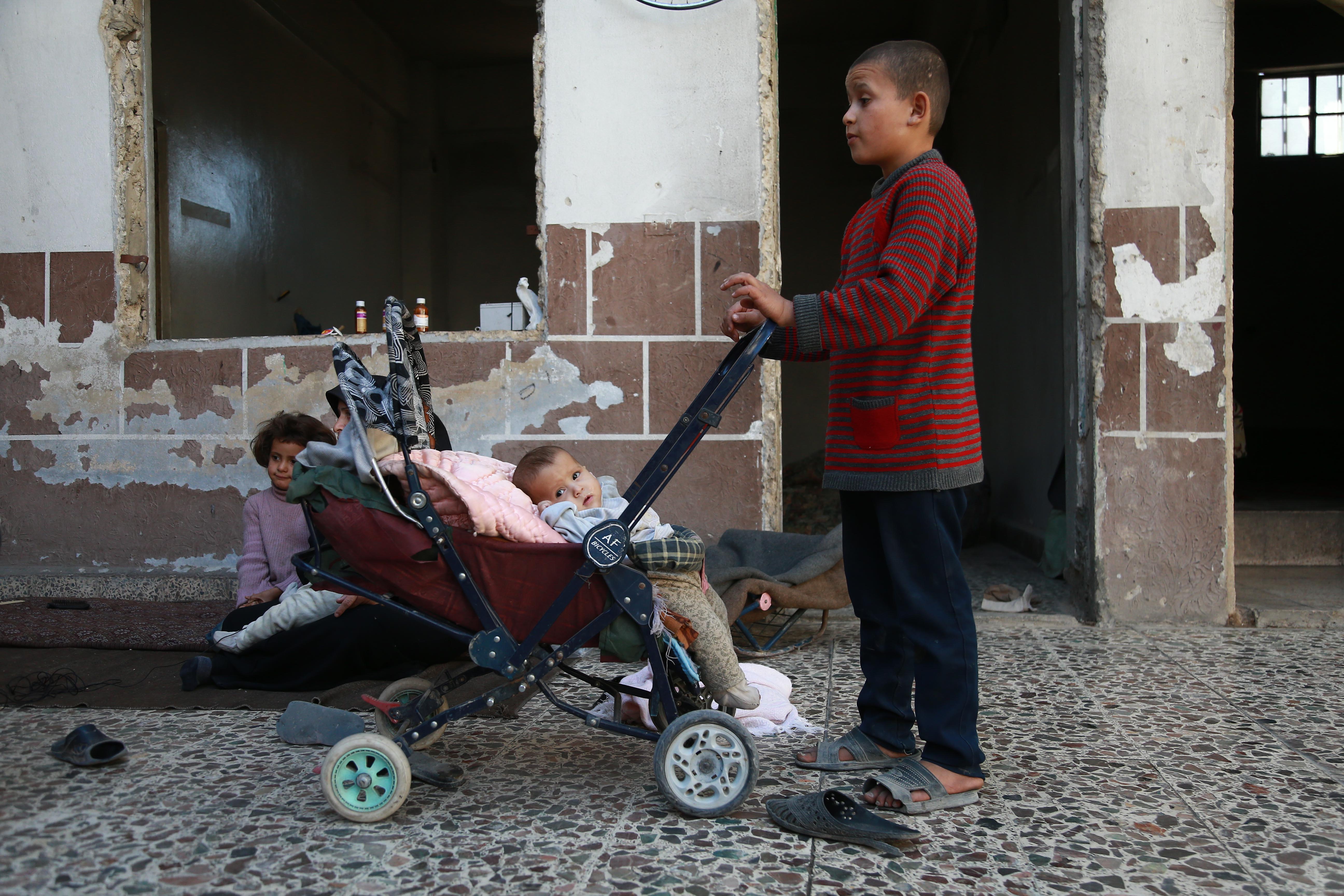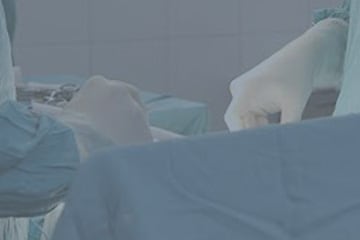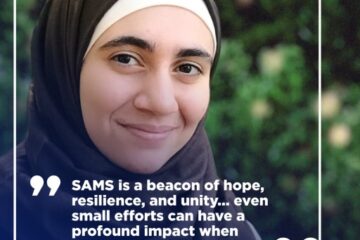October 26, 2017
Inside a an empty traditional Arab house, Umm Mohamed, 40, sits on the floor, holding her 6-month-old twins.
Her infant twins were recently diagnosed with mild malnutrition at a medical center in Hamouriya, East Ghouta. As she was leaving the center, the staff gave her one bottle of baby formula to feed her two children – it was all they could spare.
Every week, Umm Mohamed receives one bottle of milk from the health center, as they too struggle to meet an overwhelming demand admist a dearth of essential supplies.
A small bottle of milk for two is not enough to meet her twins’ nutritional needs, ensure their growth and prevent malnutrition, says Um Mohamed.
“To feed my kids, I use the little quantity of starch that I can afford,” she said.
Umm Mohamed cannot afford to buy firewood for cooking, so she must burn any materials she can get a hold of, from plastics to shoes and fabrics, which has created health problems for her and her six children. Her husband, 60, is ill and cannot work, increasing the burden on Umm Mohamed to support her family.
The four year long siege has driven up the prices of basic goods in East Ghouta, once considered an agricultural hub. One kilogram of bread in East Ghouta costs 1,150% more than in nearby Damascus. Similarly, the cost of gasoline is 2,900% higher in East Ghouta. Residents of East Ghouta have innovated — burning plastic waste to create fuel, relying on vegetables such as mushrooms that are rarely featured in Syrian cuisine.
“Most days, we only eat bread donated to us. Today, we only ate some seasonal vegetables,” she says.
Umm Mohammed’s twins are amongst at least 1,200 children in eastern Ghouta suffering from malnutrition. 1,500 others are currently at risk. According to SAMS’s Dr. Mohammed Katoub, there are currently 68 cases of severe malnutrition in East Ghouta.
This capacity for innovation and survival is no match for the siege’s crippling impact — East Ghouta is on the precipice of humanitarian disaster, and residents have nowhere to turn.
– Photos and Story by Abdulmonam Eassa/Syrian American Medical Society






